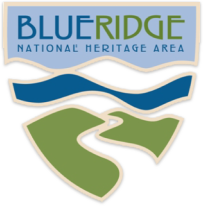The Blue Ridge National Heritage Area today announced nineteen grants totaling more than $250,000 in funding designed to preserve and promote Western North Carolina’s heritage.
Funded by the federal dollars the Blue Ridge National Heritage Area receives, the grant awards will help support diverse initiatives across the North Carolina mountains and foothills, focusing on craft, music, natural heritage, Cherokee traditions, and the region’s legacy in agriculture.
“We’ve seen a lot of innovative grant ideas come from local community planning,” said BRNHA Executive Director Penn Dameron.
The grant awards focused on projects identified and included in local heritage development plans prepared by volunteer Heritage Councils in each of the 25 counties that comprise the Blue Ridge National Heritage Area.
“The grants will help preserve the region’s heritage and stimulate economic opportunity through more visitation,” said John Cooper, BRNHA Board Chair.
Dameron noted, “The total economic impact from these grants is almost $1.2 million – when you add the $925,000 pledged as local matching contributions for these projects to the $250,000 in grant awards.”
The nineteen awards include:
- $33,500 to the Appalachian Sustainable Agriculture Project for an effort to provide new tools and training for the promotion of agri-tourism in Western North Carolina;
- $6,500 to the Asheville Art Museum to support its American Masterpieces: Southern Craft & Traditional Art exhibition;
- $5,000 to the Carolina Mountain Land Conservancy for a short film and oral history documenting the conservation of the World’s Edge tract adjoining Chimney Rock State Park;
- $12,500 to the Clay County Communities Revitalization Association for the construction of a Cherokee winter house exhibit in the Nelson Heritage Park;
- $20,000 to the Friends of the Great Smoky Mountains National Park for cultural history exhibits which will be part of the planned expansion of the Park’s Oconaluftee Visitor Center;
- $7,500 to the Friends of Panthertown for the development of a trail guide and interpretive signage for Panthertown Valley;
- $35,000 to the Friends of the W. Kerr Scott Lake for the creation of a native trees/flora exhibit at the lake’s new visitor and environmental education center;
- $10,000 to the Historic Carson House for the repair and stabilization of a century-old barn;
- $20,200 to the Historic Johnson Farm for renovations to its boarding house which will make possible year-round visitation;
- $7,000 to The Land Trust for the Little Tennessee for entrance improvements and a pedestrian plan for the Cowee-West Mill National Historic District;
- $7,500 to the McDowell County Tourism Development Authority for an oral history project that will preserve local stories and use them for tourism promotion;
- $5,627 to the Mountain Heritage Center of Western Carolina University for the development of digital media showcasing Cherokee crafts and traditions;
- $5,450 to the North Carolina Bartram Trail Society for the creation of an interpretive trail map;
- $13,000 to the Parkway Playhouse for the development of an original musical on the life and legacy of African-American musician Lesley Riddle;
- $5,800 to the Smoky Mountain Native Plants Association for branding of its locally-produced cornmeal and ramps products;
- $15,000 to the Stecoah Valley Cultural Arts Center for the implementation of a strategic marketing plan;
- $23,000 to the Surry Arts Council for the creation of an Old-Time Music Heritage Hall as part of the expansion of the Andy Griffith Playhouse;
- $7,975 to the Western North Carolina History Association for a new, permanent exhibit in the Smith-McDowell House Museum highlighting the relationships of several families to the mountain landscape in the 19th century;
- $10,420 to Western Piedmont Community College for the teaching of local, historical traditions of pottery production.
After announcing the grants cycle in June 2008, the Blue Ridge National Heritage Area received a total of 43 applications.
The Blue Ridge National Heritage Area, designated by Congress and the President in November, 2003, works to protect, preserve, interpret, and develop the unique natural, historical, and cultural resources of Western North Carolina for the benefit of present and future generations, and in so doing to stimulate improved economic opportunity in the region. National Heritage Areas are locally-governed institutions that encourage residents, non-profit groups, government agencies, and private partners to work together in planning and implementing programs that preserve and celebrate America’s defining landscapes.


